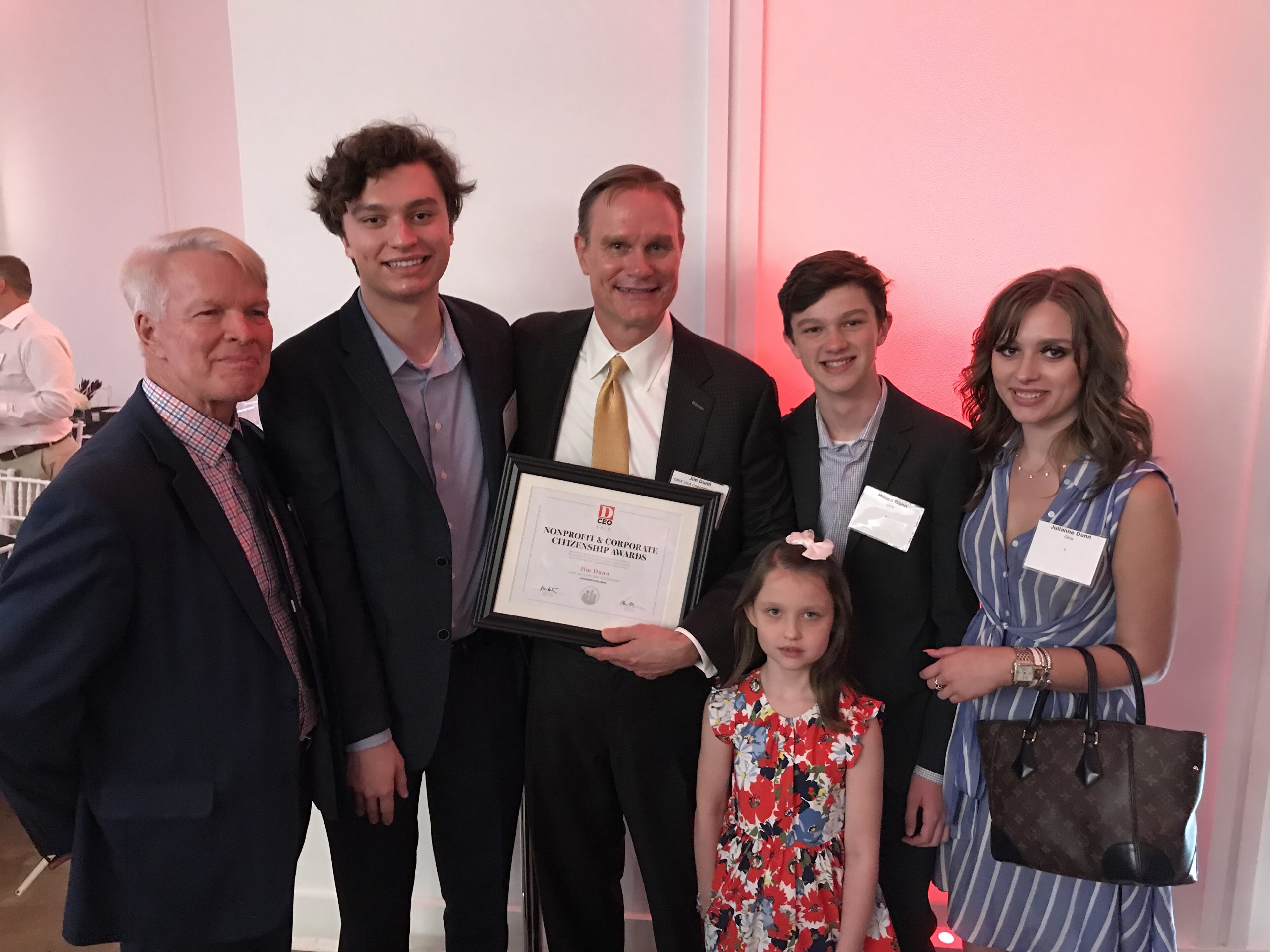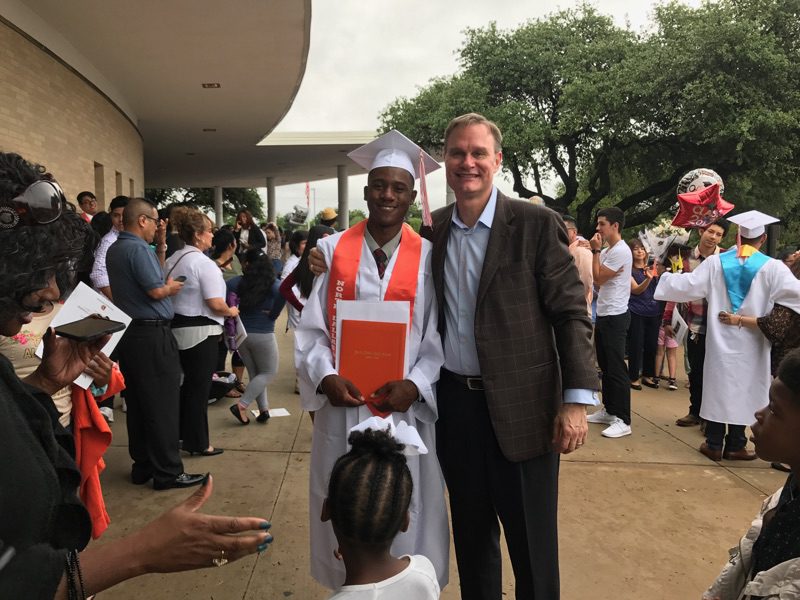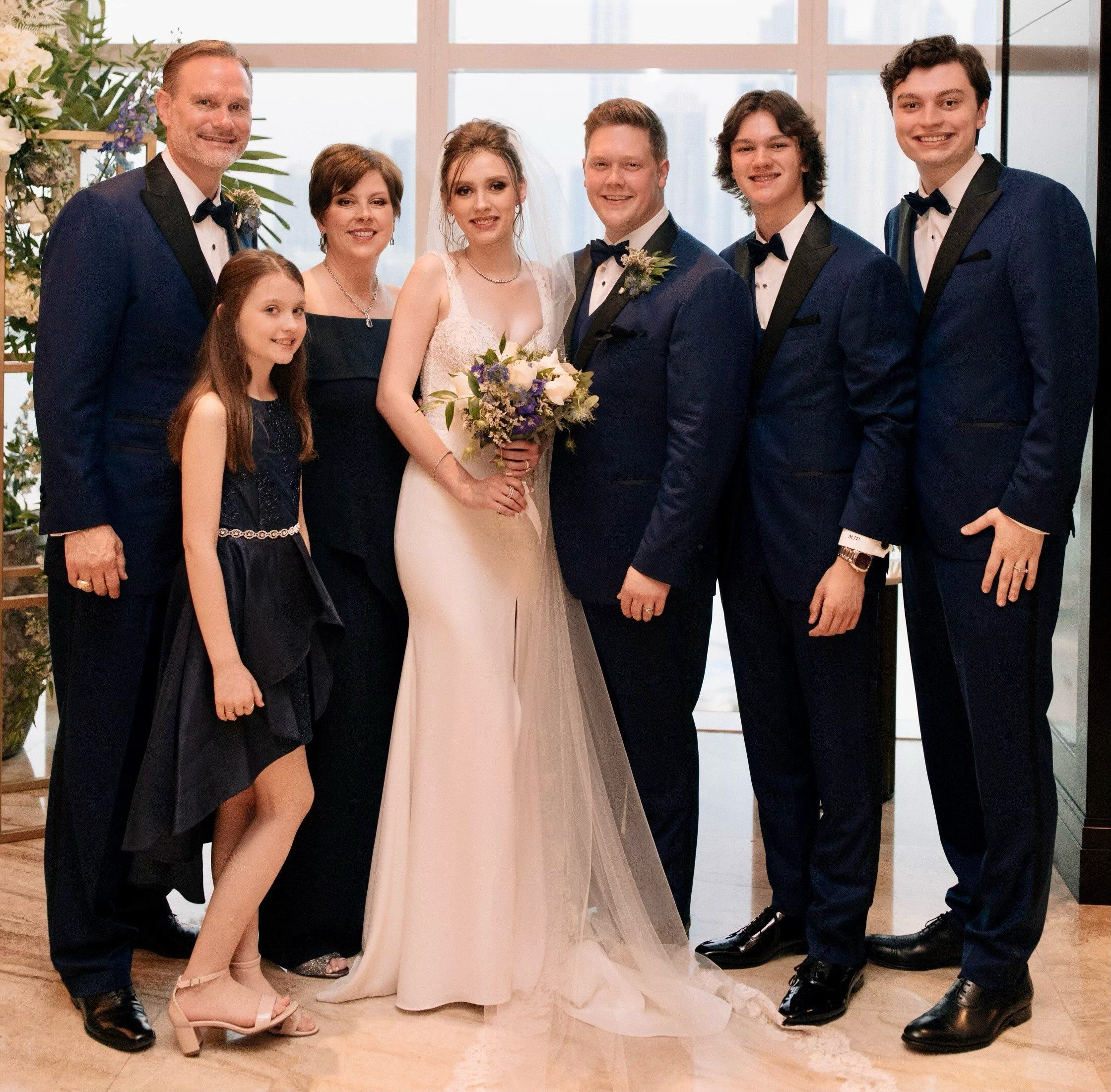
For Jim Dunn, Senior Managing Director and Head of Real Estate Capital, his participation in the Big Brothers Big Sisters organization as a teenager bridged a gap following the untimely early passing of his father. But it was his mother, an Irish immigrant who came to the United States on her own at age 22, whose guidance and support proved life-changing and opened his eyes to giving back in the community.
“My Mom was amazing,” Jim said. He described her rough journey to America and the first example in their family of how paying it forward had a meaningful impact on someone’s life. “We had a great uncle who took the risk to sponsor my mother to come to this country. I’m not even sure he had ever met her,” he said. Once in New York, his mother, Julie, met her husband. An eventual job for his father with Texas Instruments led them to settle in Dallas with their three boys, at the time ages two, three, and nine.
Tragically, Jim’s father passed away in an automobile accident while he and his siblings were still children. Although the family experienced tough times, Julie eventually went back to school to become a neonatal and pediatric ICU nurse. “She worked nights and sent us to school,” he noted. “She was super big on education. Education was everything.” And so was the importance of a male role model in her sons’ lives.
“I visited the 450-acre farm in Ireland where Mom grew up and spent time with my grandad, helping with the cows and herding sheep,” said Jim. Seeing this relationship and the value of it, Jim’s mother knew a male role model was important to Jim as well as his brothers. That led Jim and his family to Big Brothers Big Sisters, the nation’s largest donor- and volunteer-supported mentoring network, which was founded in Dallas and well known in the area. The group matches adult volunteers (“Bigs”) with children ages five through young adulthood (“Littles”).
Jim explained how with a single, working mother of three, and not a large income, the family didn’t go out much. “We didn’t have Cokes or Dr. Peppers at home often,” Jim laughed, “so when my Big Brother took me to a restaurant, I’d order 10 with all the free refills!” But joking aside, Jim is quick to point to all the things he would probably never have experienced without his Big Brother’s presence – from sailing and canoeing to camping and movies.
“Starting when I was eight years old, that relationship had a big impact on me,” said Jim. “I looked forward to that call from my Big every week and he was diligent about planning activities for us to do every other week all the way until I went to college.
Jim points to discussions with his Big about different careers, the economy, stocks, and other things as an influence on his decision to pursue a finance degree.

The Power of Mentoring
Over time, demanding jobs and a growing family of four kids kept Jim busy, and while he remembered the Big Brothers Big Sisters program fondly, he didn’t have as much free time to proactively participate. After he joined ORIX USA, one of his responsibilities included assisting with disbursing grants to worthy organizations as the President of the ORIX Foundation, a predecessor to our current CSR group. Jim eventually jumped back in through another Big Brothers Big Sisters program – Mentor 2.0 – which blends online and in-person mentoring between adult mentors and high school student matches to get students focused on college and career readiness.
“I really encourage people who want to get their feet wet with mentoring or programs like Big Brothers Big Sisters to try Mentor 2.0. You start by emailing a student once a week, so it’s not a big-time commitment, and you discuss topics like college applications and resumes, and provide feedback or insights,” explained Jim. Another aspect of the program involves visiting the student every six weeks at school.
Jim and his first mentee remained connected throughout the student’s high school years, and when the young man mentioned skipping higher education due to lack of financial resources, Jim’s guidance paid off. “Through my work at ORIX USA and our giving efforts, I was familiar with the Paul Quinn College in Dallas, a former recipient of a $1 million grant we gave out,” said Jim.
With Jim’s encouragement, his young mentee spent a few years at Paul Quinn College, and eventually funneled his love of plants into a career in landscaping.
“Mentoring is incredibly powerful,” said Jim. “One of the biggest ways Big Brothers Big Sisters makes an impact is massively increasing a kid’s exposure to the world around them and making them aware of otherwise unknown possibilities. You cannot want something that you have never been exposed to.” According to Big Brothers Big Sisters, approximately 97% of their graduates enroll in college, enlist in military service, or are employed after high school.
Jim also mentioned how often he hears the discussions on what organizations can do to promote more diversity in our workforce, especially for more women and minority groups in financial services. “I think an organization like Big Brothers Big Sisters is one solution and can encourage a wide range of kids to explore these types of careers and opportunities,” he said.

Passing the Family Torch
From an unknown uncle taking a chance on his mother, to her realizing Jim’s need for a male role model, to Jim mentoring a young student, the cycle continued. And it goes on with Jim’s own children.
For several years Jim served on the Regional Board of Big Brothers Big Sisters and now serves as a member of the Executive Board. This year he and his wife, Shazell, hosted the Big Brothers Big Sisters 26th Black Tie Ball, the group’s main fundraiser.
It was during their attendance at the annual event last year that their children caught the Dunn family “pay it forward” bug.
“While they knew my story, it was the event that served as the catalyst and inspiration to make them take the plunge and become Bigs,” said Jim. His oldest daughter and her husband are part of the Big Couple program which incorporates a volunteer’s spouse/partner with the Little match. “They do activities with their Little every two weeks, and he loves it,” he said.
Jim also maintains contact with his former Mentor 2.0 Little, texting to check in on him and continue their connection. And the family tradition of passing the torch, so to speak, goes on from that “Big” organizational influence.
“When my mentee went to college, we saw his next oldest sibling go as well, and then their sister,” said Jim. “There’s a domino effect from these Big relationships that people may not immediately see, but there is trajectory of ongoing success for these young people thanks to parents like my mother, who realize the value of mentorship and the Big Brother Big Sister programs.”
How to Support Big Brothers Big Sisters
Big Brothers Big Sisters offers programs nationwide, including some of the main mentoring programs in Texas that Jim discussed. To get involved either in the Dallas/Texas area or in another state, visit: